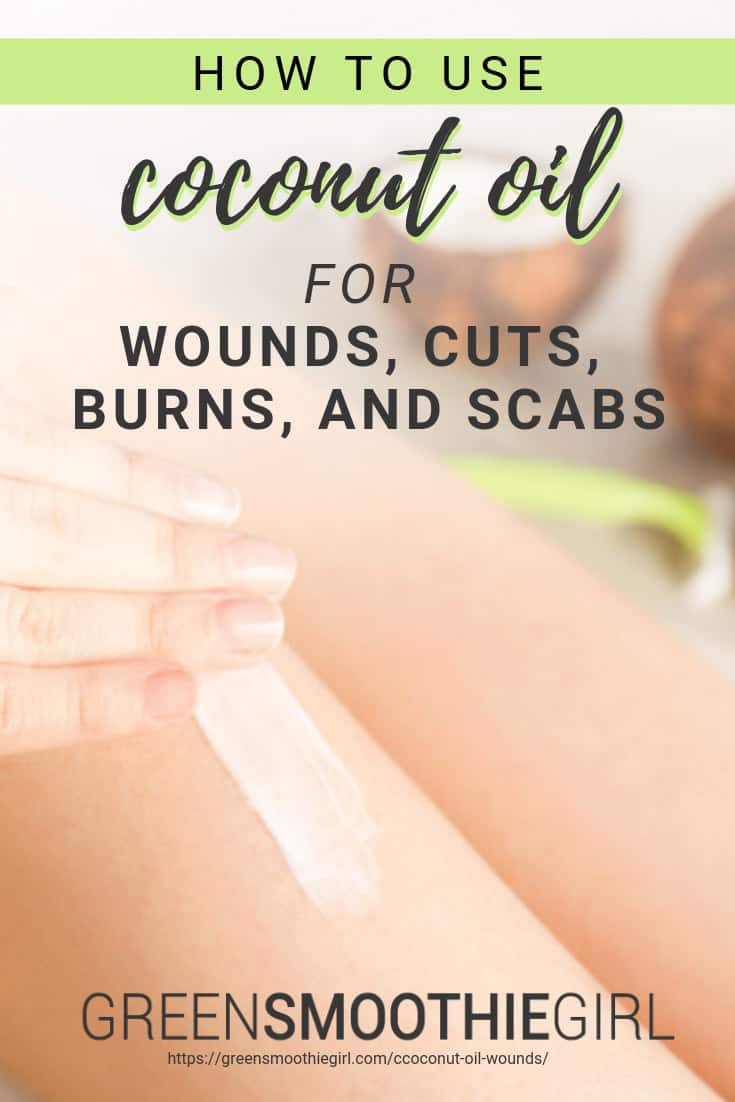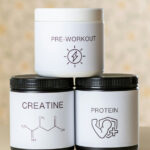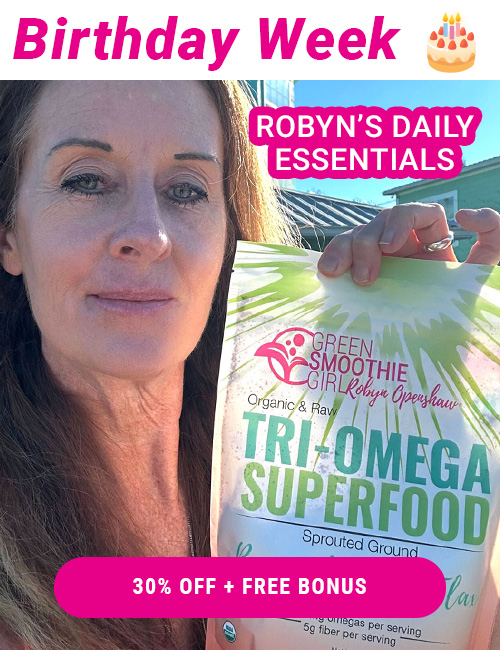How to Use Coconut Oil for Wounds, Cuts, Burns, And Scabs
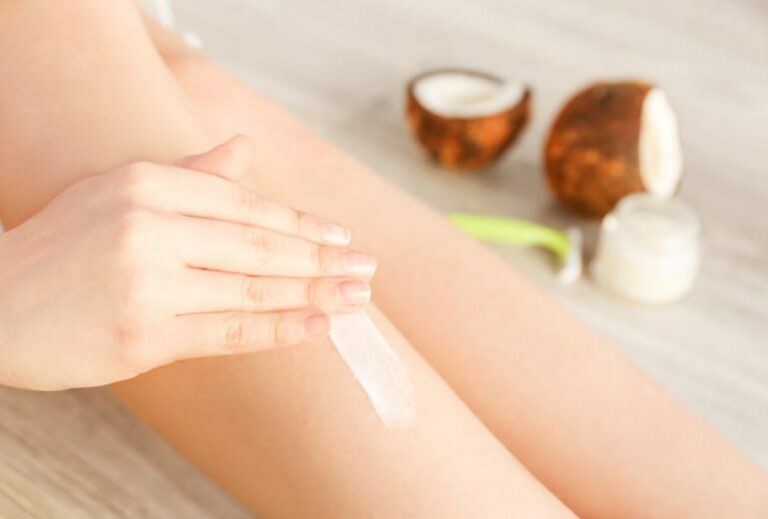
You probably know that coconut oil has amazing benefits – but did you know that it can actually help to heal wounds and cuts? Scientists agree that using coconut oil for wounds is an effective way to promote faster healing.
In fact, there are many research studies that have found applying coconut oil to a cut or scrape on your skin can help you heal more quickly – and it works on all sorts of skin issues, from diabetic wounds to burns to dry skin. If you remember, coconut oil even came in handy for helping my concrete-mangled face shed its scabs and get back to smooth in just three days!
I often use coconut oil as a nighttime moisturizer, and in fact, it’s helped me heal after burning off about 10 pre-cancers. I also used it successfully on a deep cut on my lip two years ago (tennis racket to the face) that no doctor wanted to stitch up.
[Related: Top 11 Benefits of Coconut Oil, and How to Use It Every Day]
In this article:
- What is Coconut Oil?
- Can Coconut Oil Help Heal Wounds?
- How Do You Use Coconut Oil for Wounds?
- When to Use Coconut Oil for Wounds
- Coconut Oil for Scars
- Final Thoughts on Using Coconut Oil for Wounds
Of course, using the right kind of coconut oil in the right way is crucial for reaping the wound-healing benefits and maximizing your results. From which type of coconut oil works best to heal wounds to when, where, and how to apply it, find out everything you need to know about the powers of coconut oil to heal your skin.
WHAT IS COCONUT OIL?
You’ve probably seen jars of coconut oil at your local grocery store, but you may not know exactly what it is – or more specifically, how it’s created. Coconut oil comes from coconuts that are found on the coconut palm tree, or the Cocos nucifera. The coconuts are harvested from the tree when they’re mature, and then coconut oil is extracted from the kernel or meat. This process creates a plant oil with anti-inflammatory and skin barrier repair effects when used topically.1
Coconut oil can be extracted after the coconut milk has been removed while the meat is still wet, which results in what’s called virgin coconut oil. It also can be extracted from the copra2 – or dried coconut meat – which makes a more refined coconut oil. I’m a fan of using the “whole food,” or as whole as possible, for both food and for skin application, so I always buy organic, virgin oil.
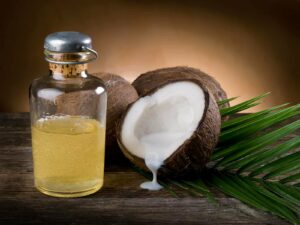
Coconut oil is loaded with saturated fats, with nearly 90% of fatty acids in coconut oil being saturated fats.
Another product that’s similar to coconut oil and has been found to offer many of the same benefits for skin healing is cultured coconut extract, which is virgin coconut oil that undergoes additional bacterial fermentation.3
This may be useful in helping the skin maintain its own microbiome. (Yes, like the gut, the skin has a wide variety of beneficial bacteria that keep it healthy and young-looking and quick to heal.)
Lauric Acid in Coconut Oil
Coconut oil is rich in lauric acid and a number of other fatty acids, which research suggests have a positive effect on wound healing.4 Scientists have found that the high levels of monolaurin in coconut, which is derived from the large amounts of lauric acid, are particularly important because monolaurin has the ability to disintegrate the membranes of lipid-coated harmful bacteria. In short, monolaurin is thought to be what gives coconut oil its antibacterial and antifungal properties.5
CAN COCONUT OIL HELP HEAL WOUNDS?
When it comes to research about using coconut oil to heal open wounds on your skin, there’s no question: Using coconut oil can help cuts, scrapes, and scabs to heal more quickly. In fact, multiple research studies have found that coconut oil has a wide range of healing properties.
- In animals, wounds treated with virgin coconut oil healed more quickly than untreated wounds. The coconut-oil treated wounds also showed a significant increase in pepsin-soluble collagen and increased antioxidant enzyme activities.6
- Burns treated with coconut oil had significant improvements in burn wound contraction – or the body’s efforts to close up the wound – as well as a significantly decreased period of epithelialization, meaning new tissue growth that covers a wound to heal it.7
- Coconut oil was found to be more effective than silver sulfadiazine cream at treating diabetic ulcers.8
- The monolaurin in coconut oil can make it an effective antibacterial and antifungal treatment. Both bacterial and fungal infections can slow down the ability of wounds to heal.9

Coconut oil has antibacterial and antifungal properties.
In addition to helping heal wounds, coconut oil has been shown to have excellent skin benefits. It can help with a variety of skin conditions and offer added protection from damage caused by the sun.
- Coconut oil was found to be just as safe and effective as mineral oil for treating dry skin.10
- Coconut oil decreased the severity of mild to moderate atopic dermatitis in pediatric patients.11
- Coconut oil in the form of cultured coconut extract provides better barrier functions for the skin and has an anti-inflammatory effect after skin is exposed to ultraviolet radiation.12
- Coconut oil can even help protect the skin from the damaging effects of the sun’s UV radiation.13
HOW DO YOU USE COCONUT OIL FOR WOUNDS?
To harness the power of coconut oil for healing wounds, start with virgin coconut oil, the pure oil that’s extracted from fresh coconut meat before it’s been dried.
Most of the research involving coconut oil for wound treatment has been conducted using virgin coconut oil, and several studies have shown that, compared to refined coconut oil, virgin coconut oil has more inflammation-reducing anxtioxidants and is better able to fight free radicals.14
You can find virgin coconut oil online. (My readers love to stock up on discounted buckets of the highest quality oil I’ve found, during our annual wholesale-price Group Buy on a variety of whole-foods pantry staples, so get on our newsletter list so you hear about it in October every year).
Virgin coconut oil will be whiter than refined oil and have a more coconut-y smell and taste. Just make sure it says “virgin” and “cold-pressed” on the label. This same kind of oil I use for my skin is what I use for baking or frying as well.
Wounds respond best to coconut oil when they’re treated while still fresh, so it’s smart to keep a jar of virgin coconut oil in your pantry and in your medicine cabinet. You can treat a wound using coconut oil with the following steps:
- Immediately after getting a cut, wash it with running water and pat it dry.
- Apply a generous amount of coconut oil to the cut using sterile gauze.
- Cover the cut with a bandaid or sterile bandage if you prefer.
- Re-apply the coconut oil to your cut several times a day, and continue to apply coconut oil to your scabs until the wound is healed.
You can treat burns using coconut oil in a similar way. When I blended some boiling turkey drippings in a blender to make gravy, the blender jar exploded and I ended up with one arm covered with second-degree burns. I used raw honey, wrapped it with an ace bandage, and later, added coconut oil.
- As soon as your skin is burned, immediately run the burn beneath cold water, which will stop the burning process.
- Apply coconut oil to the burn using sterile gauze.
- Cover the burn with a sterile bandage, and repeat the process several times a day until the burn has healed. [Note: If you have it, I prefer aloe vera or raw honey, or alternating the two, to treat the initial burn for a couple of days, then coconut oil to help speed the healing process.]
Of course, if your wound or burn is large or severe, please get professional medical attention.
[Related: 12 Proven Aloe Vera Benefits (Plus Uses & Precautions)]
WHEN TO USE COCONUT OIL FOR WOUNDS
Using coconut oil as soon as possible after you receive a cut, burn, scrape, or small open wound can provide a wide range of benefits. Along with helping you to heal more quickly, it keeps your skin moisturized and boosts collagen production, both of which may help reduce scarring.
Because coconut oil also has anti-inflammatory effects, applying virgin coconut oil to your burn or cut may help reduce swelling and relieve some of the pain.
COCONUT OIL FOR SCARS
While research hasn’t shown that using coconut oil (or any other kind of cream) for existing scars will necessarily help to minimize or eliminate them completely, some anecdotal evidence shows that coconut oil could help. Because coconut oil is moisturizing on the skin and boosts collagen production, there may be benefits if you apply coconut oil to existing scars regularly.

There is anecdotal evidence that coconut oil can help reduce the harsh appearance of scars.
Plus, treating scars with coconut oil hasn’t been shown to have any negative effects, so it’s worth trying. Most skin care products are full of chemical additives to preserve it for years.
At the very least, the moisturizing effects of coconut oil will help to keep your scar from getting dry and becoming uncomfortable.
Final Thoughts On Using Coconut Oil For Wounds
Next time you get a cut, an open wound, or a sore on your face (or any other part of your body), skip the chemical medicinal creams and head for your pantry.
By using coconut oil on your wound several times a day and continuing to apply it to scabs, you can cut down on your healing time, prevent scarring, and give your skin a little pampering – all in one fell swoop!
Read Next: Top 11 Benefits of Coconut Oil, And How To Use It Every Day

Disclosure: This post may contain affiliate links that help support the GSG mission without costing you extra. I recommend only companies and products that I use myself.
SOURCES
- Lin TK, Zhong L, Santiago JL. Anti-Inflammatory and Skin Barrier Repair Effects of Topical Application of Some Plant Oils. Int J Mol Sci. 2017;19(1):70. Published 2017 Dec 27. doi:10.3390/ijms19010070
- Encyclopaedia Britannica “Copra” Retrieved from: https://www.britannica.com/topic/copra
- Kim S., Jang J.E., Kim J., Lee Y.I., Lee D.W., Song S.Y., Lee J.H. Enhanced barrier functions and anti-inflammatory effect of cultured coconut extract on human skin. (Pt A)Food Chem. Toxicol. 2017;106:367–375. doi: 10.1016/j.fct.2017.05.060.
- Lin TK, Zhong L, Santiago JL. Anti-Inflammatory and Skin Barrier Repair Effects of Topical Application of Some Plant Oils. Int J Mol Sci. 2017;19(1):70. Published 2017 Dec 27. doi:10.3390/ijms19010070
- McDaniel JC, Belury M, Ahijevych K, Blakely W. Omega-3 fatty acids effect on wound healing. Wound Repair Regen. 2008;16(3):337-45.
- Nevin KG, Rajamohan T. “Effect of topical application of virgin coconut oil on skin components and antioxidant status during dermal wound healing in young rats.” Skin Pharmacol Physiol. 2010;23(6):290-7. doi: 10.1159/000313516. Epub 2010 Jun 3.
- Srivastava P, Durgaprasad S. Burn wound healing property of Cocos nucifera: An appraisal. Indian J Pharmacol. 2008;40(4):144-6.
- Amro M. Soliman, et al. “Virgin coconut oil and diabetic wound healing: histopathological and biochemical analysis” Eur. J. Anat. 22 (2): 135-144 (2018)
- Lin TK, Zhong L, Santiago JL. Anti-Inflammatory and Skin Barrier Repair Effects of Topical Application of Some Plant Oils. Int J Mol Sci. 2017;19(1):70. Published 2017 Dec 27. doi:10.3390/ijms19010070
- Agero A.L., Verallo-Rowell V.M. A randomized double-blind controlled trial comparing extra virgin coconut oil with mineral oil as a moisturizer for mild to moderate xerosis. Dermatitis. 2004;15:109–116. doi: 10.2310/6620.2004.04006.
- Evangelista M.T., Abad-Casintahan F., Lopez-Villafuerte L. The effect of topical virgin coconut oil on SCORAD index, transepidermal water loss, and skin capacitance in mild to moderate pediatric atopic dermatitis: A randomized, double-blind, clinical trial. Int. J. Dermatol. 2014;53:100–108. doi: 10.1111/ijd.12339
- Kim S., Jang J.E., Kim J., Lee Y.I., Lee D.W., Song S.Y., Lee J.H. Enhanced barrier functions and anti-inflammatory effect of cultured coconut extract on human skin. (Pt A)Food Chem. Toxicol. 2017;106:367–375. doi: 10.1016/j.fct.2017.05.060.
- Korac R.R., Khambholja K.M. Potential of herbs in skin protection from ultraviolet radiation. Pharmacogn. Rev. 2011;5:164–173. doi: 10.4103/0973-7847.91114.
- Marina AM, Man YB, Nazimah SA, Amin I. Antioxidant capacity and phenolic acids of virgin coconut oil. Int J Food Sci Nutr. 2009;60 Suppl 2:114-23. doi: 10.1080/09637480802549127. Epub 2008 Dec 27.
Posted in: 12 Steps To Whole Food, Holistic Care, Natural Remedies




